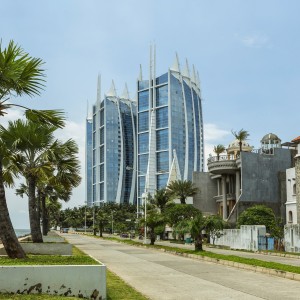The Stream, March 29: Arctic Ice Is Lowest On Record
The Global Rundown
The amount of sea ice in the Arctic has reached the lowest winter levels recorded since measurements began nearly four decades ago. A growing percentage of meteorologists now believe climate change is manmade. Drought-hit farmers in India are struggling as the government enforces bans on the sale of cattle for slaughter. Delhi announced it will continue a subsidy to provide some free water to the city’s residents, and the U.S. federal government said it will extend assistance to Flint, Michigan until August to address drinking water contaminated with lead.
“I wonder what the government wants — our survival or the cattle’s?” –Revaji Choudhary, a farmer in India’s Maharashtra state, on the tightening government bans on sales of cattle for slaughter. The bans are adding financial stress to farmers already under pressure from consecutive droughts. (Reuters)
By The Numbers
67 percent Amount of meteorologists who believe climate change is manmade, while 96 percent agreed climate change is occurring. Yale Environment 360
20 kiloliters Amount of water Delhi plans to continue to give away for free to residents of the city, extending the subsidy in its new budget. The Hindu
Science, Studies, And Reports
The amount of sea ice cover in the Arctic this winter reached its lowest extent since records began in 1979, according to measurements by the National Snow and Ice Data Center in Colorado. At its height, the ice this year covered just 14.52 million square kilometers. Guardian
On The Radar
The U.S. Federal Emergency Management Agency will continue to provide support to Flint, Michigan until August 14, helping the city to cope with a lead-contaminated drinking water crisis. The announcement extends an emergency declaration that was originally meant to end in mid-April. Reuters
A news correspondent for Circle of Blue based out of Hawaii. She writes The Stream, Circle of Blue’s daily digest of international water news trends. Her interests include food security, ecology and the Great Lakes.
Contact Codi Kozacek






Leave a Reply
Want to join the discussion?Feel free to contribute!